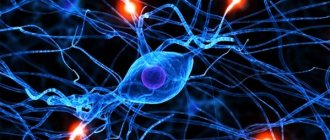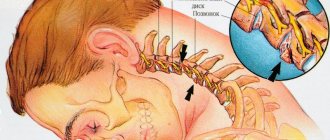Happy 9 months of waiting are sometimes overshadowed by illnesses. Carrying a baby is a responsible task, and the burden falls exclusively on the mother’s body. One of the companions of pregnancy is dizziness, which is not uncommon in expectant mothers.
But they cannot be called the norm either. Dizziness is a signal that a pregnant woman needs to take care and definitely see a doctor. But most often, this unpleasant symptom affects those women who were familiar with it before pregnancy - for example, dizziness before or during menstruation, associated with hormonal imbalance in the body.
Dizziness is the illusion of one’s own movement or the movement of surrounding objects. With dizziness, general weakness, pallor, and cold sweat may occur. Ringing in the ears, darkening of the eyes, and decreased blood pressure may also occur.
Reason 2, low blood pressure
Pregnancy hormones dilate blood vessels. Therefore, blood pressure decreases in early pregnancy.
Due to low pressure, little blood flows to the brain, which is what causes dizziness.
What to do: In the early stages, it’s not a sin to indulge in salty foods. Salt retains fluid in the vessels and pressure increases. Eat a piece of feta cheese in the morning or add salt and chopped herbs to your usual kefir.
Physical exercise, especially swimming, also normalizes blood pressure.
Prevention of dizziness
- Avoid stuffy rooms and crowded places.
- Don't sit in one position, change your body position more often.
- Don't let yourself feel hungry. Pregnant women should eat little but often. Always have a bottle of water, an apple, and dried fruits with you.
- Avoid sudden climbs, turns and other movements.
- Don't forget about moderate physical activity. Exercising for pregnant women trains blood vessels and is very beneficial. You need to exercise under the guidance of an experienced trainer or under the supervision of doctors.
- Take a contrast shower.
- For dizziness, you can inhale essential oils of peppermint, geranium or eucalyptus.
- Take vitamins prescribed by your doctor.
- Avoid tight or constricting clothing.
- Walk more in the fresh air.
- Drink enough water.
- See your doctor regularly and take all prescribed tests.
- If dizziness is accompanied by weakness, loss of coordination and loss of consciousness, consult a doctor immediately.
Cause 3, orthostatic hypotension
This tricky term means this. When you stand up, the blood vessels in your legs do not have time to narrow, and the blood flows down from your head. The brain is left without an influx of oxygen - and severe dizziness occurs, which can result in fainting.
This often happens in the morning, after getting out of bed. Or at night when you got up to go to the toilet.
What to do:
Drink at least 2 liters of fluid per day.
- Sleep with the head of the bed raised. To do this, place something under the head of the bed to raise it by about 10 degrees. If you use a large pillow or raise only the headboard, there will be no effect.
- Eat salty foods. Now, in the early stages, it won't hurt.
- Don't get out of bed abruptly in the morning. First, lower your feet to the floor and sit for a few minutes.
How to help with dizziness?
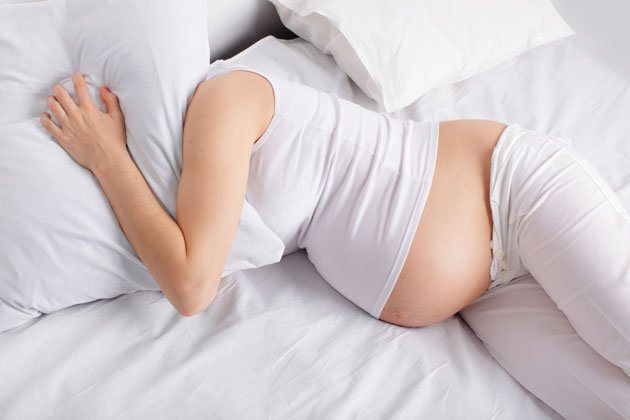
You need to lie down, preferably with your legs slightly elevated. Be sure to unfasten your belt and collar.- If you feel dizzy while standing, sit down and lower your head as low as possible to increase blood flow to the brain. Ask for water and drink in small sips.
- If you have low blood pressure or feel hungry, you need to drink sweet hot tea.
- For anemia, hemoglobin-increasing drugs and a special diet including iron-containing foods are prescribed.
Reason 5, hypoglycemia
That is, low blood sugar. A pregnant woman's body needs a lot of energy. Body cells receive this energy by metabolizing glucose. And for the absorption of glucose, the hormone insulin is needed.
Therefore, insulin levels increase in pregnant women. And if you did not have time to eat on time, then blood sugar under the influence of insulin may drop sharply.
Then there is a strong feeling of hunger, dizziness - and then it’s not far from fainting from hunger.
What to do:
- Eat small meals 5-6 times a day.
- Fewer “fast” carbohydrates – more “slow” ones. You don't need buns, cookies and jam, but cereals, vegetables and brown bread!
- Carry food with you everywhere. Dried fruits, apples, grain breads. And in case of hypoglycemia - chocolate or mint caramel.
Causes of dizziness in pregnant women
- Toxicosis . Due to frequent vomiting, the body becomes dehydrated, blood volume decreases, which leads to a lack of oxygen supply to the brain.
- Hypotension is low blood pressure.
- A sharp change in body position - abruptly getting out of bed, straightening.
- Staying in one position for a long time - for example, standing for a long time in transport or in a queue.
- An enlarged uterus in later stages can compress blood vessels and reduce blood flow to the heart.
- Lack of glucose can occur with long breaks between meals.
- Low level of hemoglobin in the blood – anemia.
- Also, the causes of dizziness can be various diseases that disrupt the blood supply to the brain - osteochondrosis, diseases of the cardiovascular system, vegetative-vascular dystonia, etc.
Origin of vertigo while expecting a baby
An expectant mother may feel dizzy for various reasons:
- a sharp drop in pressure,
- anemia – decreased amount of hemoglobin in the blood,
- increasing or decreasing glucose levels,
- hunger, sudden change in body position,
- sunstroke,
- prolonged stay without fresh air in a room with a large crowd of people,
- mental, physical fatigue,
- weather conditions, changes in atmospheric pressure,
- an increase in the intensity of blood circulation in the uterus in a pregnant woman,
- excessive load on the blood vessels and heart due to increased blood circulation and the formation of an additional circulation,
- toxicosis causes dizziness during pregnancy in the initial stages,
- Gestational diabetes mellitus is formed due to excessive pressure on the pancreas and disappears after the birth of the child,
- Cervical osteochondrosis makes itself felt with spasms when turning the head sharply.
Dizziness can also be more serious, which can be triggered by various pathologies:
- diseases of the heart, blood vessels,
- inflammation of the inner ear,
- problems with the vestibular system,
- brain diseases, various injuries,
- pathologies of the cervical spine,
- ectopic pregnancy, frozen fetus.
Dizziness during pregnancy can also occur for other reasons not related to bearing a child, for example, allergies or increased ventilation.
Diagnostics
All ailments must be reported to the gynecologist during routine examinations or contact a therapist if attacks of dizziness occur frequently. Particularly dangerous are paroxysms accompanied by severe vomiting, disturbances of perception, and loss of consciousness.
After a physical examination and medical history, the doctor prescribes laboratory and instrumental examinations for the pregnant woman.
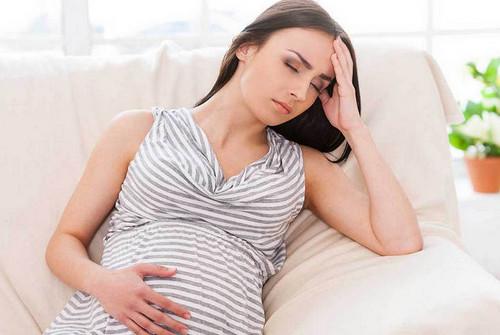
A study of blood composition allows us to identify changes in its formula, indicating iron deficiency anemia. Biochemical analysis provides complete information about the concentration of cholesterol, sugar, and microelements.
For reference. Instrumental diagnostics are carried out to identify or exclude cerebrovascular, neurological and other organic disorders.
Pressure too high
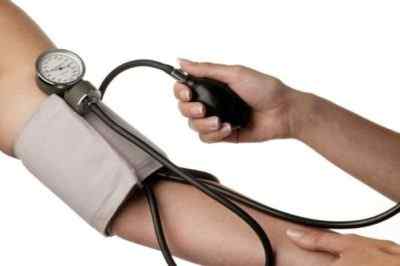
or higher. Several factors may be the cause. One of them is physical activity, which literally “falls” on the expectant mother’s body and makes the heart function faster. The second reason is insufficient vasodilatation, i.e. greater blood volume and faster circulation increases blood pressure in the blood vessels. Although pregnancy and childbirth are natural for a woman, a recent study says that this "behavior" of the body is an autoimmune response to the "unusual organism" that is present in it. Whether caused by anything, the fetus is, to some extent, dangerous for a woman. Thus, preeclampsia affects approximately 1 in 5 pregnant women and, predominantly, its symptoms appear later in pregnancy.
Complications of high blood pressure during pregnancy are represented by such phenomena as:
- Water retention in the body.
- Excretion of excess protein into the urine.
- The most risky are seizures and eclampsia, which can lead to miscarriage, placental damage, fetal impairment, kidney failure, vascular damage, cerebral hemorrhage and, in the most serious cases, death.
Providing first aid
According to the laws of the Russian Federation, it is prohibited to give the patient any medications. For this reason, you should know the procedure for fainting in a pregnant woman. Assistance is provided according to the following rules:
- assuming a horizontal position with raised lower limbs;
- increased oxygen flow;
- drink;
- any fruit or a small piece of dark chocolate.
In case of fainting or severe dizziness, the woman must be placed on a hard horizontal surface. Do not sit the patient down or place a pillow under her head. This will increase blood flow from the brain. Such exposure can significantly worsen the situation.
If you faint, you need to elevate your lower limbs. In this case, blood fluid rushes to the head. Consciousness is gradually returning. It is also necessary to increase air flow. If fainting occurs in a public place, the crowd should be dispersed. If the fall occurred indoors, you need to open a window or window. This will freshen the air.
When the woman returns to her senses, it is necessary to give the woman a drink of water and eat a piece of fruit or chocolate. Fruits and chocolate contain large amounts of glucose. This will allow the brain to recover faster.
It is not recommended to perform other activities. A fall may cause a head injury. Any careless movement of a pregnant woman or incorrect provision of assistance can lead to a worsening of the condition. After first aid, you need to make sure there are no complications and call emergency help.
Diagnosis and treatment
To identify the reasons that provoked dizziness, the gynecologist will advise you to consult a neurologist. The examination may include clinical blood and urine tests, magnetic resonance imaging. Diagnosis will always be aimed at accurately identifying the causes that can lead to dizziness, nausea and other pathologies that need to be treated immediately.
In most cases, regardless of whether it is the first or third trimester, treatment of dizziness in pregnant women does not require medication and is aimed at eliminating the reason why it occurred.
A wonderful specialist neurologist M. M. Shperling (Novosibirsk) talks about the causes of dizziness attacks:
In case of toxicosis, the woman will be advised to use the antiemetic drug Cerucal. If during the examination anemia was detected, the expectant mother will be prescribed iron supplements. When the reason is a change in the amount of sugar in the blood, the pregnant woman will be sent for a consultation with an endocrinologist.
In any case, a woman should remember that before taking any medication, she needs to consult with her doctor regarding its appropriateness.
Traditional medicine also offers its own methods of getting rid of dizziness. To get rid of these unpleasant symptoms, she is advised to drink a decoction of mint or lemon balm. During attacks of malaise, you can inhale peppermint essential oil. If the cause is overheating of the body, the woman needs to apply a cool compress to the forehead area.
Having felt the first manifestations of dizziness, the expectant mother needs to take a horizontal position, raising her legs slightly up. If at the moment she does not have such an opportunity, she needs to ensure a flow of blood to the brain in another way.
For example, to do this, you can sit down with your head tilted downwards. If this symptom appears due to a long break between meals, then you need to drink warm and sweet tea.

What to do?
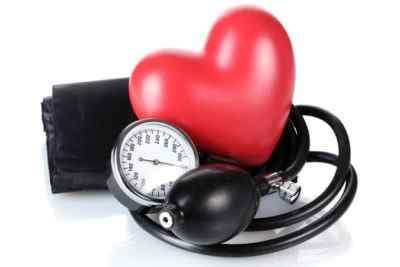
If the pressure tends to increase to excessively high values, we are talking about a risky pregnancy, and the doctor recommends maximum bed rest and pharmaceutical drugs, the action of which is aimed at reducing and stabilizing the pressure. If the condition worsens, the doctor usually decides to terminate the pregnancy at an earlier stage, and at a later stage - a caesarean section.
Constant and rare dizziness
If pregnancy proceeds with various manifestations of weakness:
- A woman should not travel unaccompanied. A fall as a result of fainting or dizziness can lead to negative consequences for the fetus and even pregnancy failure.
- If you experience frequent dizziness, further examination may be necessary, because such manifestations may be caused by serious diseases.
Sometimes, at the insistence of the doctor, the expectant mother spends a difficult period of pregnancy in a hospital to preserve the vital functions of the fetus. Weakness should not be ignored; this condition requires a special approach and adjustment (depending on the identified cause of dizziness).
Feeling dizzy and/or having a headache during pregnancy – is it dangerous?

Fainting during pregnancy can generally be classified as an accompanying aspect of the “interesting situation”. This is another physiological sign that a pregnant woman must fight. The condition in which dizziness is not dangerous for either the mother or the fetus unless the pregnant woman is unconscious for a long period of time (insufficient blood supply to the brain) or the fall was not severe (if there is a strong impact from the fall, there is a risk of miscarriage).
Consequences and prevention
Mild, infrequent attacks of dizziness are not dangerous for pregnant women. They usually go away after stabilization of hormonal levels, as well as under the condition of maintaining a healthy lifestyle and good nutrition.
Only systematic severe paroxysms in combination with vomiting and fainting, indicating serious pathologies, can lead to serious consequences.
For reference. You can prevent dizziness at the planning stage by undergoing a full examination and, if necessary, treating chronic pathologies.
The lifestyle of the expectant mother also influences the course of pregnancy.
In conclusion: danger signals during pregnancy!

However, it is important to know what the body's warning signs are that something is "wrong." Your doctor or midwife should prepare you for potential problems, which may be specific to your situation, but in general, the following warning signs apply throughout pregnancy. Problems with blood pressure, swelling - these are all in the high-risk category.
If you experience any of the following symptoms, it is important to see a doctor immediately. They will advise you on what further steps may be needed or help you rule out more serious complications.
Remember! Neglecting these signals may endanger you and your child!
Causes of dizziness in the 3rd trimester and ways to cope with it
The last weeks of bearing a child are the most exciting and troublesome for women. But in addition to everyday issues, expectant mothers often have to worry about their well-being and health. Dizziness often occurs in the third trimester of pregnancy, which brings significant discomfort and makes you feel extra nervous.
This condition does not necessarily refer to pathology. It may have physiological causes. But it still requires specialist supervision and correction of the pregnant woman’s condition.
Why do you feel dizzy?
Dizziness in the last stages of pregnancy can worry even experienced mothers. This condition occurs suddenly and is quite difficult to tolerate due to the large weight of the fetus and the increased anxiety of women during this period. It appears for several reasons:
- due to a strong feeling of hunger;
- when blood pressure drops;
- from a sharp transition of the body from a sitting position to a lying position and vice versa;
- due to inhaling too deeply;
- with changes in blood sugar levels;
- due to anemia;
- with heat stroke;
- due to an increase in the amount of circulating blood due to the increase in body weight of the pregnant woman;
- from mental or physical fatigue;
- due to lack of oxygen in a stuffy room;
- when changing atmospheric pressure;
- due to late gestosis;
- against the background of vegetative-vascular dystonia;
- due to fetal pressure on large vessels;
- with gestational diabetes mellitus;
- due to bad weather or its sudden change.
These situations are explained by pregnancy and disappear after childbirth. Such reasons can be classified as physiological; they require adjustment of the regimen and compliance by the mother with precautions. But such conditions do not pose a serious danger.
Dizziness during pregnancy in the third trimester can be caused by somatic diseases of the woman. These conditions include:
- osteochondrosis of the cervical spine;
- pathologies of the vestibular apparatus;
- diseases of the heart and blood vessels;
- injuries;
- otitis;
- brain diseases;
- allergic reactions;
- Meniere's disease;
- ARVI;
- side effects of medications;
- epileptic brain activity.
It is not difficult to distinguish physiological dizziness from pathological one: in a normal state of the body, weakness lasts no more than 30 minutes.
It goes away after rest and does not bother you every day for a long time. If the nature of the violations does not correspond to these standards, it is worth undergoing an examination by specialists.
Dizziness at 37 weeks of pregnancy and beyond may indicate the onset of labor. Therefore, when its signs appear, you should listen to your body. If after some time rhythmic nagging pain occurs in the lower abdomen, you need to go to the maternity hospital. Doctors at the emergency department will assess your condition and determine further tactics.
Ailments at all stages
Dizziness during pregnancy is a normal process that occurs in the female body, so it should not cause much concern. Basically, the condition is defined as mild and does not require specific treatment.
Classification of the disease depending on the duration
| Period | Causes |
| In the first trimester |
Pregnancy in the 1st trimester is often accompanied by minor ailments, which have completely natural causes. |
| In the second trimester | In the absence of toxicosis, the origin of vertigo is similar. But in the 2nd trimester the body begins to react slowly to irritating factors, so in this case the reasons are different:
Pregnancy in the presence of such conditions proceeds quite normally. |
| In the third trimester | The last stage of expecting a child - the 3rd trimester is the hardest. The body has changed, the uterus is preparing for the appearance of the baby. This happens at the 38th week. Blood rushes to the bottom, as a result of dizziness during pregnancy. These are minor ailments that disappear after half an hour. They should not be alarming if they do not cause fainting or decreased blood pressure. |
Pregnancy in the later stages requires special monitoring, so attacks need to be treated more carefully, since fainting and lack of coordination can cause the expectant mother to fall, which is dangerous for her and the baby.


